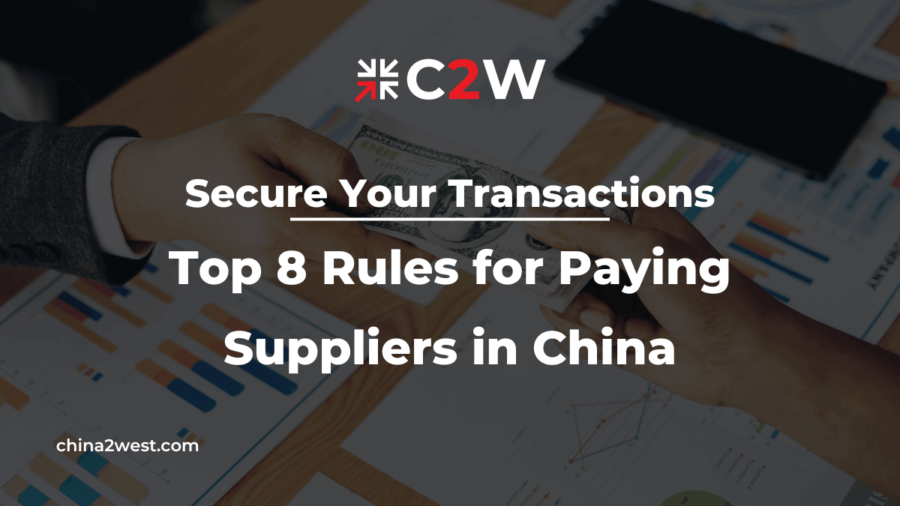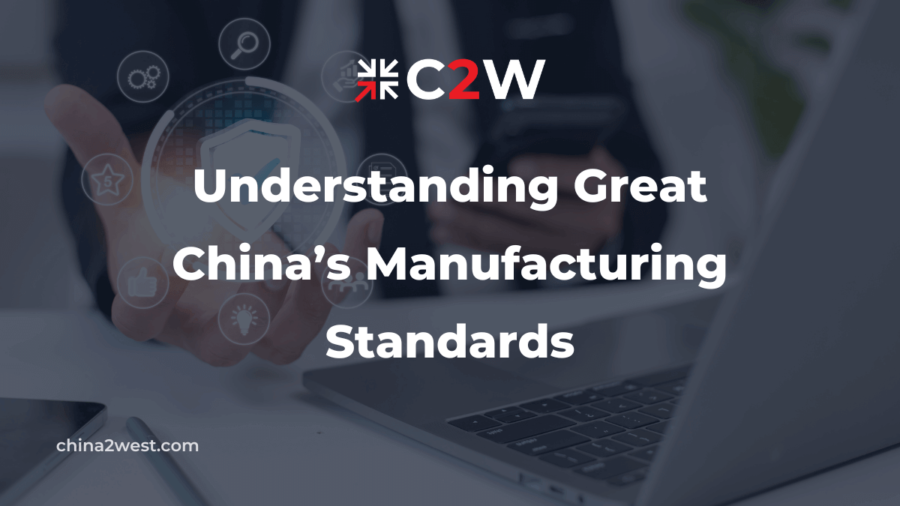In the bustling global marketplace, China stands out as a leading hub for manufacturing and trade. Engaging with Chinese suppliers can unlock incredible opportunities for businesses worldwide. However, navigating the financial transactions with these suppliers requires careful consideration to ensure security and reliability. In this blog, we delve into the top eight essential rules that every business should follow to secure their transactions and build trustworthy relationships with suppliers in China. From choosing the right payment methods to verifying supplier credentials, these guidelines will help you mitigate risks and foster successful business partnerships. Let’s explore how you can protect your investments and ensure smooth, hassle-free transactions with Chinese suppliers.
1. Due Diligence is Key
Before even considering a transaction, it’s crucial to conduct thorough due diligence on your prospective suppliers. Verify the legitimacy of the business by checking their business licenses, obtaining and verifying references, and reviewing their financial statements if available. Online platforms can provide a wealth of information regarding the supplier’s reputation and reliability. Additionally, consider hiring a local agent or using third-party services to conduct on-ground checks. This step cannot be overlooked as it sets the foundation for a secure transaction process.
2. The Payment Methods Available
When embarking on a journey of international commerce with a Chinese supplier, it’s imperative to grasp the diversity of payment methods at your disposal. These options range widely, including traditional bank transfers, which are known for their reliability and widespread acceptance. Equally important is the utilization of letters of credit, which act as a guarantee from the buyer’s bank to the supplier, offering an added layer of security for both parties involved.
3. Use Secure Payment Methods
Choosing the right payment method can significantly reduce risks. Traditional methods like telegraphic transfers (TT) are common but carry some risk if you don’t know the supplier well. For higher security, consider using letters of credit (LCs), which provide an assurance from the bank that your money will only be transferred once the goods have been shipped as per agreement. For smaller transactions or samples, using escrow services can also be a viable option, as they hold the funds until all parties are satisfied with the deal’s fulfillment.
4. Negotiate Payment Terms Upfront
Establishing clear and upfront payment terms with your Chinese supplier is a critical step in fostering a successful business relationship. Engage in open dialogue to mutually agree upon the specific details of your payment arrangement. This includes determining the precise payment schedule, specifying the percentage of the total cost to be paid in advance, and outlining the conditions under which the remaining balance will be settled. It’s vital to address these terms early in your negotiations to avoid any ambiguity that could complicate future transactions.
5. Ensure Documentation Is in Order
Maintaining meticulous records is paramount in transactions with Chinese suppliers. This practice involves keeping comprehensive and organized files of all correspondences, including emails and instant messages, agreements, billing statements, and proofs of payment. Organized documentation serves several critical purposes. Firstly, it acts as a tangible timeline of the transaction, providing clear evidence of the agreement’s progression and terms. In situations where misunderstandings or disputes arise, this documentation can be invaluable in clarifying what was agreed upon and determining the next steps. Additionally, well-kept records are essential for financial tracking and auditing purposes, allowing for a transparent review of expenses and payments made throughout the course of the business relationship.
6. Avoid Payments to Personal Accounts
One crucial rule in conducting transactions with Chinese suppliers is to avoid making payments into personal accounts. This practice, while seemingly convenient, poses significant risks including lack of protection, potential fraud, and difficulties in legal recourse. Instead, insist on paying into the official business account of the supplier, which should be verifiable and directly associated with their registered business entity. This method ensures a traceable, secure path for your funds, aligning with formal banking and regulatory requirements. It also facilitates easier resolution in case of disputes, as payments made to business accounts offer a clearer legal and financial audit trail. Furthermore, engaging in transactions through official channels reinforces the legitimacy of your business relationship, providing both parties with a framework of trust and professionalism. By adhering to this rule, companies can protect their investments and uphold the integrity of their financial dealings with suppliers in China.
7. Manage Currency Exchange Risks
Navigating the fluctuating world of currency exchange is a key aspect of maintaining financial stability when paying Chinese suppliers. Currency exchange rates can vary significantly over time, directly affecting the cost of your transactions and potentially eroding profit margins. To mitigate these risks, consider engaging in forward contracts, which allow you to lock in an exchange rate for a future transaction, providing predictability and protection against adverse shifts in currency value. Additionally, exploring multi-currency accounts may offer flexibility by enabling transactions in the supplier’s local currency, thus avoiding the costs associated with currency conversion. It’s also prudent to stay informed about global economic indicators and geopolitical events that could impact exchange rates.
8. Cultivate a Relationship with Your Supplier
Developing a strong and constructive partnership with your Chinese supplier goes beyond mere transactional interactions; it is about investing in a robust, mutually beneficial connection. Engage in frequent, open communication to ensure both parties are aligned on expectations and progress. Taking the time to understand your supplier’s operational challenges and business culture can significantly enhance trust and cooperation. Recognizing important Chinese holidays and expressing interest in their business milestones can also demonstrate respect and appreciation for their work and culture. Additionally, visiting your supplier’s facilities, if feasible, can provide invaluable insights into their production processes and strengthen your relationship further. Such gestures show a commitment to not just the business at hand but to a long-term partnership.
Partner With a Reliable Supplier in China
Paying your Chinese supplier doesn’t just involve transferring funds. It requires strategic planning, an understanding of international finance, and strong interpersonal skills. By following these golden rules, you can ensure more secure, efficient, and mutually beneficial transactions with your Chinese suppliers.
Remember, every successful international trade relationship is built on a foundation of trust, clear communication, and well-documented agreements. If you find yourself with any queries or require additional support regarding your manufacturing or product sourcing project, feel free to contact us. Our team is dedicated to providing the expertise and guidance necessary to empower your business to thrive within the dynamic global market.


